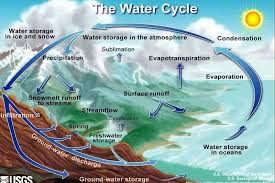The age-old debate between free will and determinism has captivated philosophers, theologians, and scientists for centuries. The central question is whether humans have the ability to make choices freely, or whether our actions are predetermined by factors outside our control, such as nature, environment, and past events. This dilemma has deep implications not only for philosophy and science but also for ethics, law, and personal responsibility. In this article, we will explore the concepts of free will and determinism, discuss their implications, and analyze the various perspectives on this issue.
Understanding Free Will
Free will is the belief that individuals have the power to make their own choices, unconstrained by external forces. It posits that humans are not merely the products of their environment, biology, or past experiences, but rather, they have the capacity for self-determined action. Free will is often seen as essential to the concepts of personal responsibility and moral accountability.
Key Features of Free Will
- Choice and Control: Free will suggests that individuals are capable of making choices based on their desires, reasons, and rational thought. This capacity for choosing freely distinguishes human beings from other animals, machines, or deterministic processes.
- Moral Responsibility: If individuals have free will, they can be held morally responsible for their actions. This concept is deeply embedded in legal and ethical systems, which assume that people are accountable for their actions because they have the freedom to choose.
- Autonomy and Self-Determination: Free will is closely tied to the idea of autonomy, where an individual has the power to direct their own life and make decisions without being controlled by external forces. It is considered essential to the notion of personal freedom.
Philosophical Perspectives on Free Will
There are several schools of thought regarding the nature of free will:
- Libertarianism: Libertarians argue that free will is incompatible with determinism. They believe that individuals have the power to make choices that are not determined by prior causes. According to libertarians, humans have genuine control over their decisions and can act in ways that go against the laws of nature or past influences.
- Compatibilism: Compatibilists hold that free will and determinism can coexist. They argue that even if our actions are determined by prior causes (such as biology or upbringing), we can still be said to act freely if we act according to our desires and intentions. In this view, free will is not the absence of cause but the ability to act according to one’s motivations and rational decisions.
- Hard Determinism: Hard determinists reject the concept of free will altogether, asserting that all events, including human actions, are determined by preceding causes. In this view, the universe operates according to strict causal laws, and our sense of free choice is an illusion.
Understanding Determinism
Determinism is the philosophical concept that every event, including human actions, is the outcome of preceding causes. According to determinism, every decision, action, or thought is the result of prior states of affairs, such as physical laws, environmental influences, and the genetic makeup of an individual. In other words, the future is determined by the past, and free will is an illusion.
Key Features of Determinism
- Causal Chains: Determinism is based on the idea that every event is part of a chain of cause and effect. Every action or event is determined by the conditions and events that came before it. For example, a person’s decision to eat a particular meal is determined by their past experiences, cultural background, biological needs, and environmental factors.
- Laws of Nature: Determinism suggests that the universe operates according to fixed laws of nature, such as the laws of physics. These laws determine the way things happen, from the motion of planets to human behavior. In this view, there is no room for randomness or indeterminacy in the universe.
- Predictability: A key implication of determinism is that if we had complete knowledge of all the conditions and causes at any given moment, we could predict every future event. This idea is often linked to Laplace’s Demon, a hypothetical intellect that could predict the future of the universe if it knew the position and velocity of every particle.
Philosophical Perspectives on Determinism
- Hard Determinism: Hard determinists argue that because everything is determined by prior causes, free will does not exist. They maintain that human behavior is the result of genetic, environmental, and historical factors, and individuals have no control over their actions. As a result, hard determinism often challenges the notion of moral responsibility.
- Scientific Determinism: This perspective is grounded in the natural sciences, particularly physics and biology, which suggest that all events are causally determined by prior states. Scientific determinism has been championed by thinkers such as Isaac Newton and later, more recently, by neuroscientists who argue that human behavior is determined by brain processes and biology.
- Psychological Determinism: This form of determinism argues that human behavior is shaped by psychological factors, such as early childhood experiences, social conditioning, and unconscious drives. Psychologists like Sigmund Freud and B.F. Skinner have argued that our actions are the result of unconscious or conditioned influences, leaving little room for free choice.
The Free Will vs. Determinism Debate
The conflict between free will and determinism raises significant philosophical questions that challenge our understanding of human nature, morality, and responsibility.
1. The Problem of Moral Responsibility
If determinism is true and all our actions are determined by prior causes, can we still hold people morally accountable for their actions? This is one of the key issues in the free will vs. determinism debate. If our actions are determined by factors beyond our control, how can we be blamed or praised for them?
Proponents of free will argue that moral responsibility requires the ability to choose differently. If we could not have done otherwise, then moral responsibility would be unjust. However, compatibilists suggest that moral responsibility can still exist within a deterministic framework if individuals act according to their desires and rational decisions.
2. The Illusion of Free Will
Some philosophers, especially hard determinists, argue that free will is an illusion. They suggest that what we perceive as free choices are actually the result of subconscious drives, environmental influences, and past experiences. This view challenges the way we typically think about human agency and raises questions about the nature of consciousness and decision-making.
3. The Role of Consciousness
One argument against determinism is that humans experience a sense of agency and control over their actions. We are consciously aware of making choices, and this awareness seems to imply that we have free will. However, neuroscientific research has suggested that much of our decision-making occurs at an unconscious level before we are consciously aware of it. This raises questions about whether our conscious awareness of decision-making is an illusion or if it is part of a larger, more complex process.
The Middle Ground: Compatibilism
Compatibilism offers a potential resolution to the free will vs. determinism debate. It suggests that free will and determinism are not mutually exclusive and can coexist. According to compatibilists, even if our actions are determined by prior causes, we can still act freely if we act in accordance with our desires, motivations, and rational deliberations.
Compatibilists argue that freedom does not require the ability to do otherwise in every situation but rather the ability to act according to one’s desires and reasons. For example, a person who chooses to help others out of compassion is acting freely, even if their compassionate feelings are shaped by past experiences or biological predispositions.
Conclusion
The debate between free will and determinism remains one of the most profound philosophical questions, with far-reaching implications for our understanding of human nature, morality, and personal responsibility. While free will offers a sense of autonomy and moral accountability, determinism challenges our beliefs about human agency, suggesting that our actions are the result of factors beyond our control.
Whether or not we have true free will is a question that may never be fully answered. However, the ongoing exploration of this issue sheds light on the complexity of human behavior and encourages us to reflect on the nature of choice, responsibility, and the forces that shape our lives. Ultimately, the free will vs. determinism debate invites us to consider the extent to which we are the authors of our own lives and to examine the factors that influence the choices we make.




